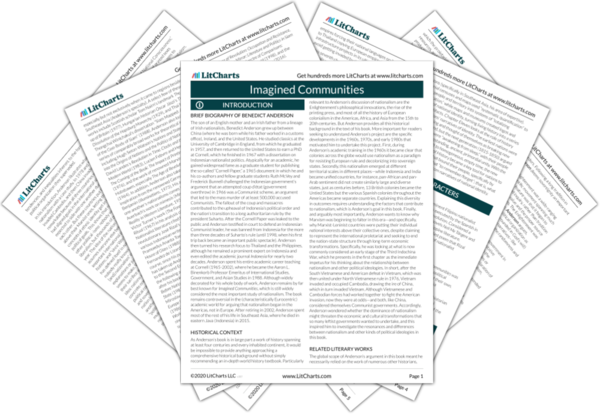Popular Nationalism Quotes in Imagined Communities
Thus the model of official nationalism assumes its relevance above all at the moment when revolutionaries successfully take control of the state, and are for the first time in a position to use the power of the state in pursuit of their visions. The relevance is all the greater insofar as even the most determinedly radical revolutionaries always, to some degree, inherit the state from the fallen regime.
In the original edition of Imagined Communities I wrote that so often in the “nation-building” policies of the new states one sees both a genuine, popular nationalist enthusiasm, and a systematic, even Machiavellian, instilling of nationalist ideology through the mass media, the educational system, administrative regulations, and so forth. My short-sighted assumption then was that official nationalism in the colonized worlds of Asia and Africa was modelled directly on that of the dynastic states of nineteenth-century Europe. Subsequent reflection has persuaded me that this view was hasty and superficial, and that the immediate genealogy should be traced to the imaginings of the colonial state. At first sight, this conclusion may seem surprising, since colonial states were typically anti-nationalist, and often violently so. But if one looks beneath colonial ideologies and policies to the grammar in which, from the mid nineteenth century, they were deployed, the lineage becomes decidedly more clear.












